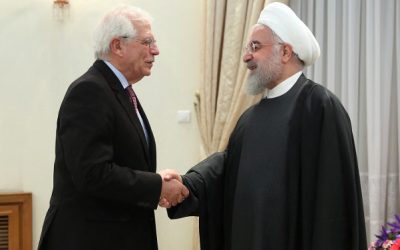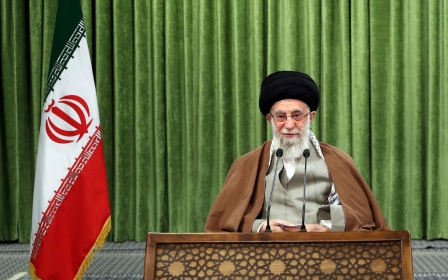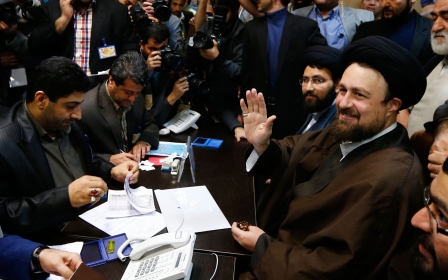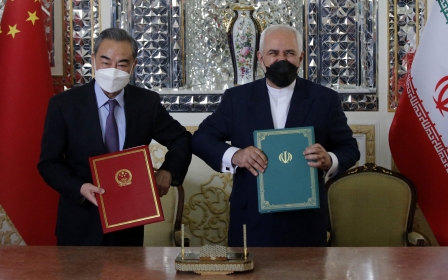Iranian press review: Tehran to increase uranium extraction as it steps back from nuclear deal
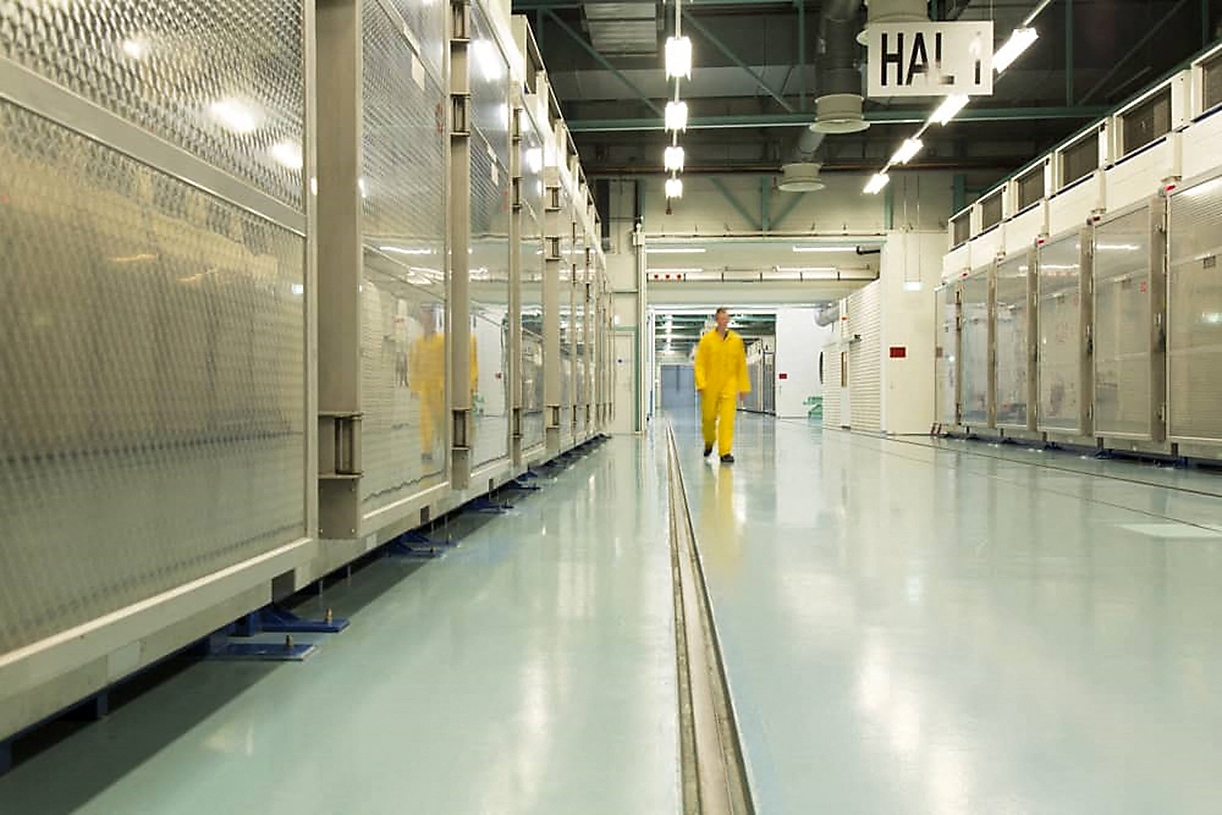
Iran to take new measures in reducing compliance with nuclear deal
The Atomic Energy Organization of Iran (AEOI) has revealed that in the past year Tehran increased its annual natural uranium extraction from four tonnes to 37 tonnes, further reducing compliance with the 2015 nuclear deal.
In an interview with ISNA news agency, Behrouz Kamalvandi, a spokesman for the AEOI, said that Tehran aimed to increase uranium extraction up to 100 tonnes annually.
He added that the Arak heavy water nuclear reactor's cold test would take place at the beginning of the current Iranian year. By the end of the year, the facility would resume all activity.
After an agreement reached between Iran and world powers in 2015, Tehran removed the Arak reactor's core and filled it with cement. However, following Washington's unilateral withdrawal from the deal in 2018, Iran has continued to reduce its compliance with the accord.
New MEE newsletter: Jerusalem Dispatch
Sign up to get the latest insights and analysis on Israel-Palestine, alongside Turkey Unpacked and other MEE newsletters
Moreover, Tehran has increased its uranium enrichment to 20 percent in response to sanctions placed on Iran by the US.
Since President Joe Biden took office in January, both sides have expressed an interest in the US returning to the deal; however, no practical step has been taken to date.
In the most recent move to solve the deadlock in negotiations between Tehran and Washington, Biden's administration offered to give Tehran access to its billions of dollars in frozen assets in other countries in exchange for stopping its 20 percent uranium enrichment in Iran. Tehran rejected the proposal immediately, urging Washington to first return to the nuclear deal.
Iranian officials have emphasised that they will continue to step back from their commitments to the deal unless Washington removes all sanctions imposed on Tehran after the 2018 unilateral withdrawal from the pact.
Iran's foreign minister, Mohammad Javad Zarif, has also accused Biden of following the same politics as former president Donald trump.
"It's sadly ironic that the State Dept is now calling on Iran to abide by the very deal the Trump administration abandoned," Zarif wrote on Twitter. "Your admin follows Trump's footsteps while trying to use his unlawful sanctions as 'leverage'," he added.
New trade deal with Russia
Days after the official signing of a 25-year cooperation agreement between China and Iran, an Iranian legislator revealed that Tehran is seeking to sign a similar long-term deal with Moscow in response to Washington's harsh economic sanctions, which have paralysed its economy.
Mojtaba Zolnouri, the head of the Iranian parliament's national security and foreign affairs committee, told Mehr news agency that Tehran wants to reach an agreement with Moscow for cooperation in petrochemicals, oil, gas and the automotive industry, as well as in building refineries, roads and railways.
"In addition to China, we are looking to sign long-term and strategic agreements with Russia to improve our bilateral economic ties," Mehr reported Zolnouri as saying. "One of the most important strategies to bypass the US sanctions against Iran is to have wide economic interaction with world powers."
The Iran-China deal has already provoked controversy within and outside Iran. In response to opposition groups' and ordinary Iranians' adverse reactions, Zolnouri emphasised that the cooperation deal with China was a road map and no specific deal had yet been made between the two allies. So far, no detail about the new agreement has been released. The only public information suggested that the two countries agreed to cooperate in the energy, military, agriculture, industry, banking and trade sectors.
On Tuesday, Rouhani's government spokesman, Ali Rabiee, said that Iran has no plans to publicly disclose the agreement's full text, adding, "but the Chinese side might have a different idea".
Meanwhile, Iranian opposition activists living outside the country claimed that, based on the agreement, Iran would sell ports and islands in the Gulf of Oman and the Persian Gulf to China in exchange for oil exports and military aid from Beijing.
A number of petitions have gone viral on Farsi social media, urging Iranians to gather before the Chinese embassy in Tehran or send an email to China's foreign ministry in opposition to the agreement.
Treasured movie theatres shut down
Historic movie theatres in Tehran have been shutting down increasingly, as the country experiences one of its worst economic crises in the past 50 years, as a result of the Covid-19 pandemic and US sanctions.
Iranian cinema is acclaimed internationally, with Asghar Farhadi the only Middle Eastern director to have won two Oscars for Best Foreign Language Film. However, inside the country, the movie industry is broken.
Iran is the region's worst-hit country by the pandemic, and movie theatres have been closed in the past six months to contain the spread of coronavirus.
While the modern theatres consisting of multiple screens, bookshops, cafes and galleries could survive the economic crisis, the old single-screen theatres have borne the brunt of the downturn.
Before Iran's two-week Nowruz (new year) holiday, local media reported that a famous movie theatre in central Tehran, Asre Jadid, was forced to close due to insufficient custom. In the 1970s and 80s, Asre Jadid was the most modern theatre in Tehran and an essential cultural hangout for university students. However, since the first multiplexes were built in Tehran, it has lost its appeal.
The Golriz, Iran Cinema and Boulvar movie theatres have also shut down during the pandemic in Tehran, and face being razed and replaced by shopping malls.
Despite the calls by cultural heritage activists and cinema lovers to preserve Tehran's historic movie theatres, no step has been taken by the culture ministry to save them.
Middle East Eye delivers independent and unrivalled coverage and analysis of the Middle East, North Africa and beyond. To learn more about republishing this content and the associated fees, please fill out this form. More about MEE can be found here.


